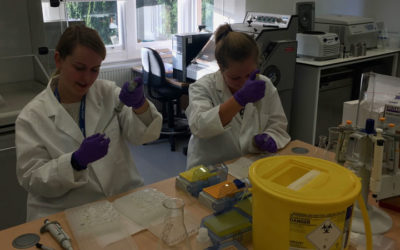learn
promote and assist the training and
development of UK FRS personnel
scholarship awards
We are keen to support the development of people who can support the Trust’s objects; particularly where students might be discouraged from studying for financial reasons.
Successful candidates may receive up to 100% of the costs of tuition fees for the academic study year, where the total value does not exceed £2,500.
The Scholarship is not restricted to any particular personal development programme, just so long as the development is line with the Trust’s objects.
All applicants must be sponsored by their line manager or other more senior manager.
The decision to make a Scholarship Award is based on:
- The degree to which the Study Programme appears to support the objects of the Trust
- Evidence of previous academic achievement indicating the potential for the applicant to be successful in their proposed studies
- The applicant’s personal statement and that of their sponsor, demonstrating why they would be an ideal candidate
The Trust’s funds are finite and only the top-ranking applications will qualify for a Scholarship Award through a competitive process.
Up to 100% of the costs of tuition fees total value does not exceed £2,500
Please download and save the application form to your computer before completing
small project grant scheme
We are keen to support fire and rescue services and their partners and affiliates with small projects that meet the objects of the Trust and that for a variety of reasons, might not be funded otherwise.
The minimum project grant is £1,000 and the maximum £30,000 provided over a maximum of two years.
Grants can be made for all kinds of reasons, including towards the costs of developing an idea, a service or a product or a training programme or training materials, that will benefit the UK FRS.
Small Project Grants may be awarded to any not for profit organisation within the UK. Individuals as well as organisations can apply for Small Project Grants.
Ordinarily, the Trust will only support Directly Incurred costs and not the full economic costs of a project. The grant may cover the total directly incurred costs for the project or a percentage of the costs.
Please download and save the application form to your computer before completing
events
Here you can find details of events sponsored or delivered by the Trust or other organisations. If you would like to have an event listed here please contact us.
RE18 – fire related research and developments
Time: 13th November 2018
Venue: West Midlands Fire and Rescue Headquarters
More details: Here
This event showcases current research studies and innovative projects and reflects on initiatives that have helped to shape today’s evidence base, policies and practice as well as look ahead to the future direction of fire related research and development. This year we have an action packed programme featuring an international speaker line-up including STS Defence Ltd, Vancouver Island University, the National Fire Chiefs Council, University of Central Lancashire, Greater Manchester Fire and Rescue Service, Tyne and Wear Fire and Rescue Service along with many others.
The Trust will be present at the conference to discuss any opportunities for funding research.
DRP Dwelling Fire Research Conference
Time: 18th – 19th September 2018
Venue: Nottingham Trent University
More details: Here
The NFCC Integrated Data and Research Programme and the UK R & D Function are holding a research conference about understanding and learning from dwelling fire research.
This conference presents a chance to not only learn about a number of studies relating to dwelling fires, but to understand the value and skills required for the increasingly important drive towards evidence informed policy and practice.
The Trust is presenting at the Conference on its work and how we can support the Fire Sector research into dwelling fires.
The Emergency Services Show 2018
Time: Wed 19th to Thur 20th September 2018
Venue: Hall 5, NEC, Birmingham, B40 1NT
Visitor entry is free
More details: Here
The Emergency Services Show offers ALL emergency workers a great place to network and learn.
As well as being able to meet with over 450 exhibitors there were also many other opportunities at the Show for visitors.
Come and visit the Trust at our stand U48. Why not make an appointment by contacting us in advance. info@firetrust.info
evaluation
Evaluation refers to the activities that are used to explore projects and their achievements against the original aims and objectives. Evaluation includes four key stages: planning, gathering evidence, reporting and sharing findings.
Evaluation can provide evidence about how effective projects have been, and the reasons why. It is an essential component of effective and efficient project delivery, and supports continuous improvement.
NHS Cambridgeshire Full Evaluation Toolkit 2009 link here
This Evaluation Toolkit is designed to support staff carrying out an evaluation of any service in both health and social care.The toolkit follows a ten step process. Each step is set out with a checklist which asks a number of questions. The notes that you make in connection with these questions will provide the basis of a first draft of your evaluation design.
Greater Manchester Fire and Rescue Evaluation Toolkit 2010 link here
This Evaluation Toolkit was developed as a result of a Knowledge Transfer Partnerships (KTP) project between GMFRS and the University of Salford. It was designed to assist staff with evaluating community safety activities. It is a great straight forward introduction to the subject.
Avon Primary Care Primary Care Research Collaborative Service Evaluation Toolkit 2015 download here
This toolkit was designed to help NHS staff evaluate a service or intervention. The toolkit is set out in four steps: Assess, Plan, Do and Review. Each provides you with a set of templates and tools to support your evaluation. Used as a whole, this toolkit will help you formulate your evaluation plan, collect and analyse your data, and then use and share your findings. Note that this is similar (but not the same) as the Cambridgeshire Full Evaluation Toolkit above but it is presented as a Powerpoint presentation, which you might find useful.
If you know of any useful links to information on this subject, please drop us a line and we will include it, where possible. info@firetrust.info
email us
contact
phone
44 (0)1608 812511
address
Fire Service Research and Training Trust
C/O Fire Protection Association, London Road,
Morton in Marsh, GL56 0RH
Stories
No Results Found
The page you requested could not be found. Try refining your search, or use the navigation above to locate the post.
news
IMPROVING INCIDENT COMMAND DECISION MAKING
IMPROVING INCIDENT COMMAND DECISION MAKING Phil Butler: the THINCS Behavioural Marker System Phil Butler’s PhD field of study is within psychology. He is specifically studying incident commander decision making in the fire service in general. He believes that the...
read moreWHY ARE SOME PEOPLE SAFER FROM FIRE?
WHY ARE SOME PEOPLE SAFER FROM FIRE? Dr Christian Morgner: Multiculturalism and Fire Incidents Christian Morgner from the University of Leicester wants to address a neglected area of demographic research on fire incidents, namely, the role of cultural diversity and...
read more


